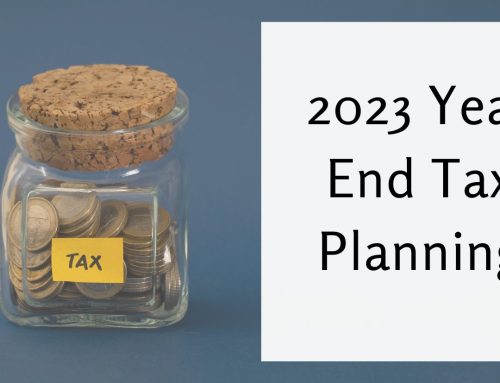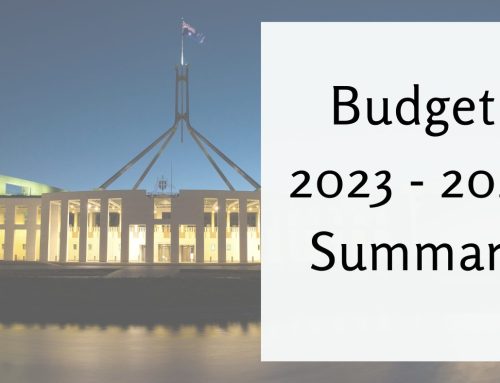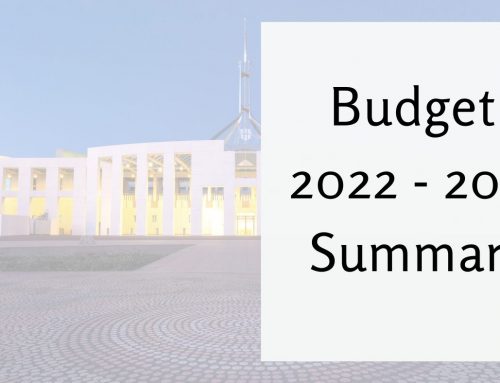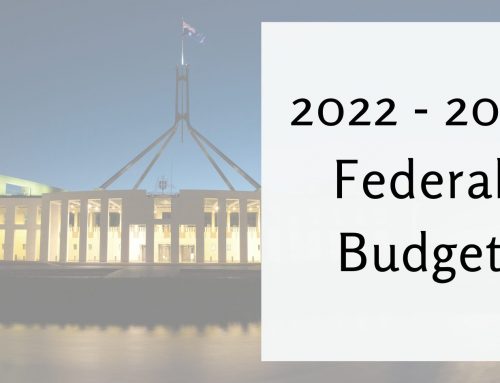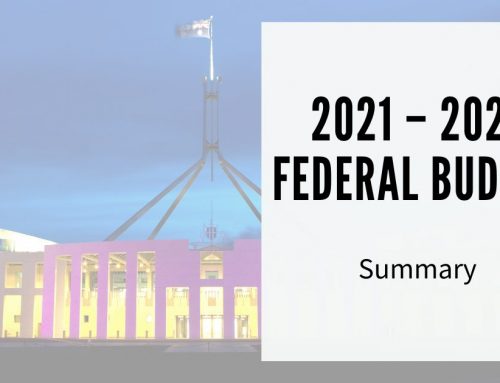Well the Government did not let us down. They have made a number of changes that will impact on everyone if the proposals are able to pass through both Houses of Parliament.
The Government stated in the Budget that their clear objective for superannuation is to provide for income in retirement or supplement the aged pension. The following are the changes that the Government has proposed for superannuation in its 2016 Federal Budget handed down last night:
- Introduction of a $1.6m per person superannuation cap for benefits that can be in pension phase and have the earnings on this $1.6m treated as tax free within the Fund. #Planning considerations subject to more details being released would include:

- Introducing a $500,000 lifetime cap for non-concessional superannuation contributions. This is a significant change and aimed at significantly reducing the ability of a person to build up substantial superannuation balances. Currently every person has a non-concessional contributions cap of $180,000 per annum or the ability to utilise the “bring forward” rule and contribute up to $540,000 in a three year period (if contributed prior to attaining the age of 65).
- Not only has the Government proposed that they cap the lifetime non-concessional superannuation caps at $500,000, they have also proposed that the reduction of concessional caps from $30,000 for those under 50 or $35,000 for those 50 years and above down to $25,000.If your superannuation balance is less than $500,000 then proposed changes will allow you make additional concessional contributions in a tax year where you have did not fully utilise your concessional cap in previous years. These amounts will be able to be carried forward for up to 5 years and will be carried forward on a rolling basis for that 5 year period. This change could offer planning opportunities for those who have been working part time or for those who are not working due to a variety of circumstances.
- From 1 July 2017 the Government has proposed to abolish the “10%rule” that prevented a person from claiming a personal income tax deduction for superannuation contributions unless more than 10% of their adjusted taxable income from non-employment income sources such as capital gains! interest income! Net rental income! Net business income and dividends. This is a welcomed change. Those unable to salary sacrifice with their employers or those who would have previously failed the “10% rule” can now plan to claim a tax deduction for any concessional contributions they wish to make to fully utilise their concessional caps.
- Another welcome change is the removal of the “work test” that required persons over 65 but under 75 to work 40 hours in a 30 day consecutive period before they could make any concessional or non-concessional contributions. The abolition of the work test will allow any form of contributions to be made to a superannuation fund (up to proposed new caps) by any person up to the age of 75.
- We had an inclination that the Government would do something with Transition to Retirement Income Streams (TRIS) and they did. We thought that the Government may cease TRIS altogether. The good news is that this did not happen. The bad news is that the Government have announced that the tax exempt status of earnings from assets supporting a TRIS will be removed. Hence, the income generated within the Fund to support the TRIS will be taxed at the normal superannuation tax rate of 15%. This will mean that we will need to review whether or not a TRIS still provides the benefits that were present when it was initially established. You may find that a number of TRISs cease once this change comes into effect.
- The adjusted taxable income threshold at which high income earners pay additional contributions tax is to be reduced from $300,000 to $250,000 with effect from 1 July 2017.
- Anti-detriment payment provisions (being where a fund can effectively refund a member’s lifetime superannuation contributions tax payments to be a dependent, a non-dependent or the member’s estate) are to be amended to remove the ability of the fund paying the anti-detriment payment to claim a tax deduction for the amount of the anti-detriment payment.
While there a couple of positive changes the message the Government is sending is clear. The generous tax concessions associated with superannuation in Australia will be substantially reduced. There has been a real focus on reducing contribution caps. One wonders whether or not the caps needed to be reined in so hard given that most Australians will only begin to focus on saving for retirement once they are the wrong side of 50. By removing the tax concessions on balances larger than $1.6m, the Government could have been more generous with the concessional and non concessional superannuation caps.
There are a number of changes that will impact people’s retirement planning. We are more than happy to discuss how these proposed changes could affect your personal tax and financial position.
If You Would Like Further Information About How The Federal Budget Will Impact Your Superannuation Please Contact The Office 03 9629 1433

